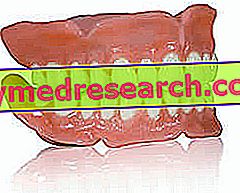
About CLA - ProAction
CLA - ProAction
Food supplement based on conjugated linoleic acid
FORMAT
Pack of 60 capsules
COMPOSITION
Conjugated linoleic acid concentrate (clarinol); Jelly; Glycerol
Antioxidant: natural tocopherols.
Per serving (2 capsules): CLA 720mg; Korean pine 720 mg
Conjugated linoleic acid (CLA) - the CLA or conjugated linoleic acid, is a set of fatty acids characterized by a carbon skeleton with 18 carbon atoms and 2 double bonds.


The hundreds of studies that tested and evaluated the activity of this molecule, allowed to identify some key biological functions:
Anti-cancer function: demonstrated both through in vitro models and through animal models, and mediated by the regulation of the apoptotic process and the cell cycle;
Immunomodulatory function: mainly induced by the C9, T11 isomer, it guarantees a significant reduction of allergic processes, positively regulating the specific immune response;
Antithrombotic function: performed through a control of cholesterol levels and a significant reduction in the expression of pro-inflammatory factors, such as arachidonic acid, thromboxanes, leukotrienes and PGE. This feature of the CLA guarantees protection against many cardiovascular diseases.
CLA and sport

- Inhibition of lipogenesis, mediated by the reduction of lipoproteinlipase activity.
- Thermogenic effect, induced by the increased expression of uncoupling proteins that allow to dissipate most of the energy in the form of heat;
- Induction of the beta oxidation process, guaranteed by the activation of carnitine acetyl transferase;
- Induction of apoptosis of pre-adipocytes.
Although the main application remains the one just described, recent scientific evidence has also demonstrated an important ergogenic effect, particularly intense in older individuals, when CLA is administered concomitantly with creatine monohydrate.
Rationale - CLA - ProAction
Although the scientific literature is particularly rich in studies in which the efficacy of supplementation with CLA is evaluated, to date still remains an important doubt about the damage / benefit ratio. This aura of skepticism that accompanies integration with CLA is partly justified:
the presence of medium-term side effects, particularly evident in patients suffering from diseases, such as the metabolic syndrome, for which CLA should be recommended;
from discordant and insignificant results on human efficacy;
by a different and specific effect of the various isomers;
from the presence of a conspicuous experimental literature with encouraging data.
The absence, therefore, of a concerted opinion and the presence on the market of other supplements that are probably more effective, more tested and safer, significantly limit the spread of CLA. For the same reasons, the user who faces the use of this supplement should always make a critical evaluation supported by the opinion of industry experts.
Recommended use by the company - CLA - ProAction
We recommend 3 capsules a day, taken with a little water during meals.
Use in sports - CLA - ProAction
The scientific literature proposes different dosages, in most cases between 2 and 6 grams per day. The most successful trials use oral doses of CLA equal to 3.4 gr / day, divided into different daily assumptions.
Given the dosage of CLA present in each capsule (about 800mg), 4 capsules should be sufficient to reach the dosage recommended by the various studies.
Given the lipid nature of the product, its intake should be carried out in conjunction with meals to improve absorption.
The times of recruitment are particularly prolonged as they accompany the slimming process, extending in most cases over six weeks.
Synergies CLA - ProAction
DIETARY PLAN AND PHYSICAL ACTIVITY: in order for CLA to assist weight loss, it is NECESSARY to program a controlled, healthy and possibly low-calorie diet, associated with a programmed physical activity adapted to individual needs.
Also in this case it is possible to describe some studies carried out on animals that associate CLA to arginine, recording positive effects on the increase in lean mass, but which make little sense, given the absence of the equivalent in humans.
Side Effects CLA - ProAction
Despite the absence of serious side effects recorded following the intake of CLA, there are various reports of possible pejorative effects in various pathological conditions:
- Increase in inflammatory biomarkers (reactive c protein and white blood cells): despite these findings, CLA has proved particularly useful due to its anti-inflammatory properties.
- Increase in insulin resistance: this effect, which seems to be more pronounced for the T10, C12 isomer, drops significantly when an evenly composed mixture is used.
- Increased oxidative stress: increased lipoperoxidation levels.
- Dyslipidemic effect: associated with the T10 isomer, C12 materializes with a reduction in plasma HDL cholesterol levels, with an increase in LDL.
Precautions for use CLA - ProAction
The product is contraindicated in cases of renal or hepatic disease, cardiovascular disease and / or hypertension, during pregnancy, during lactation and under 14 years. In the event of prolonged use (over 6/8 weeks), medical advice is required.
This article, elaborated on the critical re-reading of scientific articles, university texts and common practice, is for informational purposes only and is therefore not a medical prescription. It is therefore always necessary to consult your doctor, nutritionist or pharmacist before starting to use any kind of supplement . More information on the critical analysis of CLA - ProAction.
| BIBLIOGRAPHY |
. November; 44 (11): 975-82. Epub 2009 Sep 25. Conjugated linoleic acid induces uncoupling protein 1 in white adipose tissue of ob / ob mice. Wendel AA, Purushotham A, Liu LF, Belury MA. Nutr Rev. 2008 Jul; 66 (7): 415-21. Conjugated linoleic acids: why the discrepancy between animal and human studies?Plourde M, Jew S, Cunnane SC, Jones PJ. Eur J Clin Nutr. 2003 Oct; 57 (10): 1268-74. Effect of conjugated linoleic acid supplementation after weight loss on appetite and food intake in overweight subjects.Kamphuis MM, Lejeune MP, Saris WH, Westerterp-Plantenga MS. J Food Sci. 2007 Oct; 72 (8): S612-7. Conjugated linoleic acid (CLA) prevents body fat accumulation and weight gain in an animal model.Park Y, Albright KJ, Storkson JM, Liu W, Pariza MW. J Nutr Biochem. 2008 Jan; 19 (1): 61-8. Epub 2007 May 24. Diaz ML, Watkins BA, Li Y, Anderson RA, Campbell WW. No synergistic effect Am J Clin Nutr. 2007 May; 85 (5): 1203-11. Efficiency of conjugated linoleic acid for reducing fat mass: a meta-analysis in humans.Whigham LD, Watras AC, Schoeller DA. J Nutr. 2005 Apr; 135 (4): 778-84. Supplementation with conjugated linoleic acid for 24 months is well tolerated by body fat mass in healthy, overweight humans.Gaullier JM, Halse J, Høye K, Kristiansen K, Fagertun H, Vik H, Gudmundsen O. Lipids. 2009 Nov; 44 (11): 983-8. Epub 2009 Oct 23. Conjugated linoleic acid isomers, t10c12 and c9t11, are differentially incorporated into adipose tissue and skeletal muscle in humans.Goedecke JH, Rae DE, Smuts CM, Lambert EV, O'Shea M. J Nutr. 2009 Jul; 139 (7): 1279-85. Epub 2009 May 13. Nall JL, Wu G, Kim KH, Choi CW, Smith SB. Int J Obes (Lond). 2007 Mar; 31 (3): 481-7. Epub 2006 Aug 22. The role of conjugated linoleic acid in reducing body fat and preventing holiday weight gain.Watras AC, Buchholz AC, Close RN, Zhang Z, Schoeller DA. Riserus U, Arner P, Brismar K, Vessby B. Treatment with dietary trans10cis12 conjugated linoleic acid causes isomer-specific insulin resistance in obese men with the metabolic syndrome. Diabetes Care 2002; 25: 1516-2 Int J Obes Relat Metab Disord. 2003 Jul; 27 (7): 840-7. The effect of conjugated linoleic acid supplementation after weight loss on body weight regain, body composition, and resting metabolic rate in overweight subjects.Kamphuis MM, Lejeune MP, Saris WH, Westerterp-Plantenga MS. Eur J Clin Nutr. 2005 Apr; 59 (4): 508-17. Song HJ, Grant I, Round D, Mohede I, Sattar N, Heys SD, Wahle KW. |



